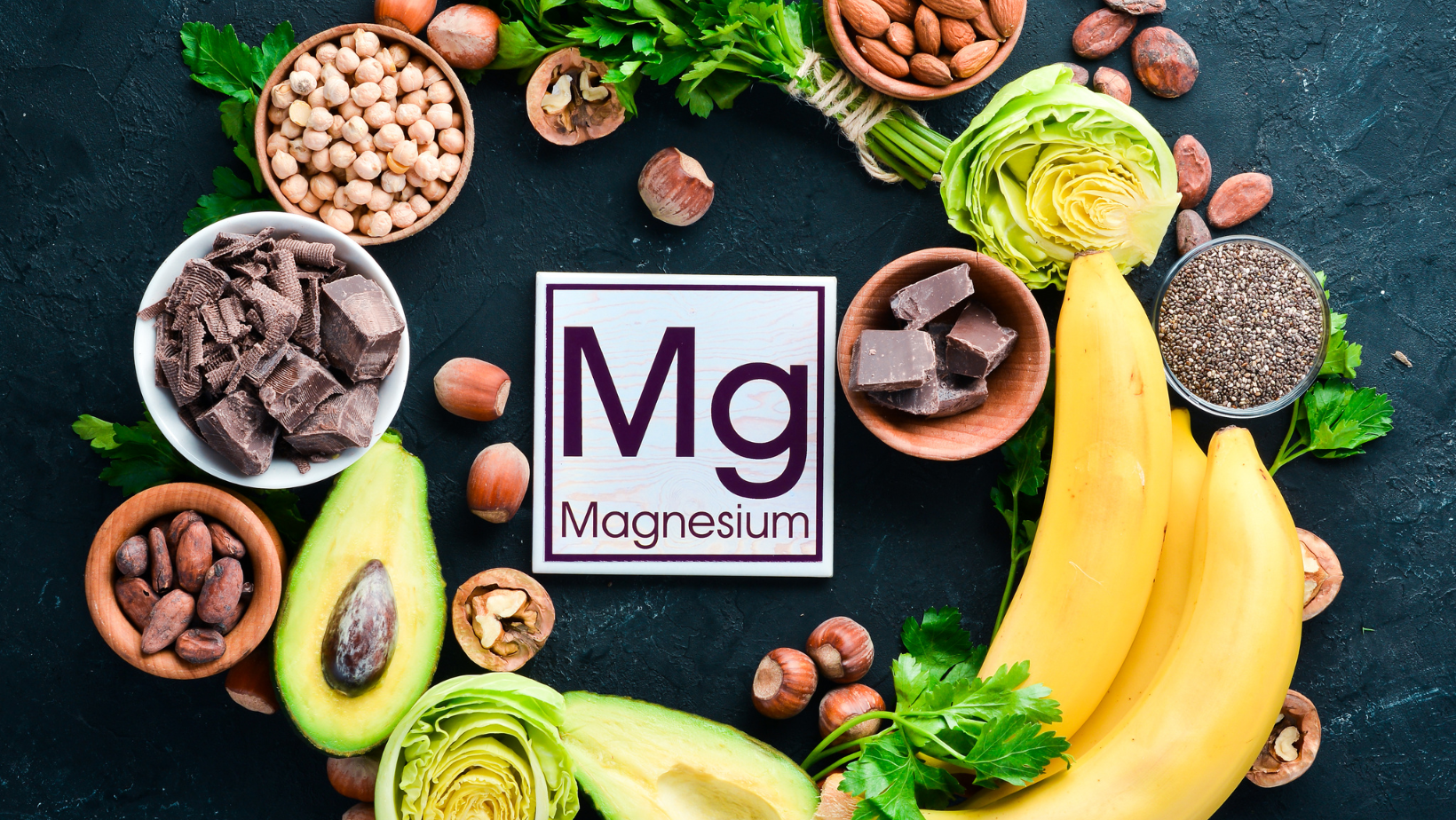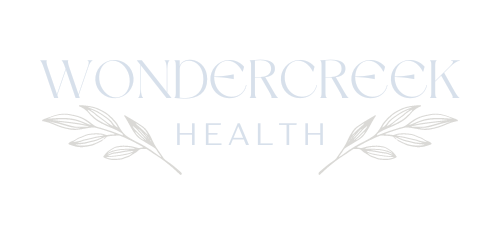The Lesser-Known Symptoms of Menopause: You're Not Crazy, It’s Just Perimenopause
Anna Harrelson • February 10, 2025
Unraveling the Mystery of Menopause: The Symptoms No One Warned You About

Hot flashes and night sweats get all the attention when it comes to menopause, but what about the symptoms that no one warns you about? The ones that leave you wondering if you have 27 different diagnoses when, in reality, it’s all just perimenopause? If you’ve been feeling off and struggling to connect the dots, you’re not alone. Let’s break down some of the lesser-known symptoms of perimenopause and menopause, why they happen, and what you can do about them.
The Wild Ride of Hormonal Shifts: It’s Not Just Declining Estrogen
Before we dive in, let’s get one thing straight: menopause symptoms aren’t just about a steady decline in estrogen, testosterone, and progesterone. It’s the erratic, unpredictable rollercoaster of hormonal shifts during perimenopause that wreaks the most havoc. Many symptoms that peak during perimenopause stabilize once estrogen levels even out after menopause. However, that doesn’t mean they disappear completely—even with menopausal hormone therapy (MHT), some symptoms persist, just with less intensity.
The Symptoms No One Talks About (But We Should)
1. Breast Size Changes
Your breasts might feel fuller, lumpier, or even shrink as estrogen and progesterone levels fluctuate. Many women notice that their cup size changes due to changes in breast tissue composition and fat distribution. Tenderness is also common, especially in perimenopause when hormone levels are fluctuating wildly.
2. Burning Mouth Syndrome
Yes, this is a real thing. Some women experience a burning sensation in their tongue, lips, or gums, likely due to declining estrogen affecting nerve function and saliva production.
3. Electric Shock Sensations
Ever felt like you’re being zapped by an invisible force? Sudden, brief electrical shock sensations are a weird but real symptom of menopause, thought to be linked to nerve instability caused by estrogen fluctuations.
4. Skin Crawling and Itchiness
If your skin suddenly feels like bugs are crawling on it, or you’re itching more than usual, fluctuating estrogen could be to blame. Estrogen plays a role in collagen production and skin hydration, so its decline can cause dryness, sensitivity, and that creepy-crawly feeling.
5. Digestive Issues
Bloating, gas, changes in bowel habits—estrogen and progesterone directly impact gut motility, microbiome balance, and inflammation. Perimenopause often brings IBS-like symptoms that settle once hormone levels stabilize.
6. Bladder and Urethral Symptoms
Frequent UTIs, urgency, or even a weird tingling sensation in your urethra? The bladder and urethra are estrogen-sensitive tissues, so they can become irritated, dry, and inflamed with hormone changes.
7. Body Odor Changes
Some women notice their scent changes, even if they haven’t switched deodorants. Shifts in hormone levels affect sweat gland activity, sometimes making body odor stronger or just different.
8. Tinnitus (Ringing in the Ears)
Fluctuations in estrogen impact circulation and nerve function, which can contribute to ringing or buzzing in the ears.
9. Increased Histamine Sensitivity
Ever feel like your allergies are suddenly worse? Estrogen affects mast cells, which are responsible for histamine release. Fluctuating estrogen can make you more prone to hives, flushing, and histamine-related reactions.
10. Anxiety and Sudden Panic Attacks
You were never an anxious person before, so why does it feel like you’re constantly on edge? Estrogen directly impacts neurotransmitters like serotonin and dopamine, and when it swings wildly, so does your mood.
11. Joint Pain and Stiffness
Estrogen has anti-inflammatory properties, so its decline contributes to increased joint pain, stiffness, and even the onset of inflammatory conditions like frozen shoulder.
How Hormone Therapy and Lifestyle Changes Can Help
While many of these symptoms improve as hormones stabilize, the reality is that you don’t have to suffer through them without support. Let’s talk about what actually helps.
Menopausal Hormone Therapy (MHT): Replacing estrogen, progesterone, and even testosterone can help significantly with many of these symptoms, especially those related to nerve function, skin, and bladder health. However, MHT won’t make all symptoms vanish overnight—it’s about stabilizing the hormonal rollercoaster and reducing severity.
Oral Contraceptives for Perimenopause: If you’re still cycling and experiencing extreme symptom fluctuations, oral contraceptives can suppress ovulation and override hormonal chaos, making symptoms much more manageable.
Lifestyle Adjustments That Matter:
Anti-Inflammatory Diet: Eating whole, nutrient-dense foods supports gut health, reduces histamine sensitivity, and minimizes inflammation that contributes to joint pain and digestive issues.
Strength Training & Movement: Regular exercise helps with joint pain, muscle loss, and hormone balance. Strength training in particular helps combat estrogen-related muscle deterioration.
Hydration & Electrolyte Balance: Dehydration can make symptoms like dizziness, joint pain, and histamine intolerance worse.
Stress Management & Sleep Hygiene: Poor sleep and chronic stress exacerbate many menopause symptoms. Prioritizing rest and relaxation is crucial.
You’re Not Broken—You’re in Perimenopause
If you’ve been dismissed by doctors, told your symptoms are unrelated, or prescribed multiple medications for what is actually a single hormonal transition, know this: you are not alone. Perimenopause and menopause can make you feel like a stranger in your own body, but there is hope. Understanding what’s happening and having a plan—whether that includes MHT, lifestyle modifications, or a combination of both—can make all the difference.
If you’re struggling and want personalized support, I’m here to help. Let’s work together to navigate this transition with clarity, confidence, and solutions that actually make a difference in your life. Because you deserve to feel like you again.
WonderCreek Health Blog

Many of the women who find their way to me share a common story: They’ve seen multiple specialists. Their labs are “normal.” Their symptoms are scattered across systems—joints, gut, mood, hormones, skin—and yet every provider focuses on one piece at a time, never the whole picture. They’ve often been told they’re anxious, dramatic, or “too sensitive.” And yet, they’re also some of the most intuitive, self-aware, and relentlessly curious patients I’ve ever met. They know their bodies. They know something isn’t right. And they won’t stop searching until someone finally sits down and helps them connect the dots. That’s where connective tissue disorders come in. What Do We Mean by “Connective Tissue Disorders”? When I talk about this group of conditions, I’m referring to women who often fall somewhere on the spectrum of: Hypermobility spectrum disorder (HSD) Ehlers-Danlos features Mast cell activation (MCAS) Endometriosis PMDD and other hormone sensitivities POTS or other dysautonomias The common thread? Their connective tissue is different—looser, more fragile, more reactive. And when the scaffolding of the body isn’t as stable, symptoms spill over into every system: joints, vessels, immune response, mood, hormones, digestion, even the brain. Why Midlife Feels Like a Breaking Point Estrogen has always been a stabilizer. It strengthens collagen, calms mast cells, and helps buffer the nervous system. So, it’s no surprise that perimenopause—when estrogen begins to fluctuate dramatically—can feel like the rug is being pulled out. I see women who: Once held things together with sheer willpower Managed PMDD, migraines, or endometriosis in their younger years Suddenly feel like everything has intensified: joint pain, bloating, histamine reactions, mood shifts, insomnia, brain fog For women with sensitive connective tissue and sensitive nervous systems, hormonal shifts don’t just cause hot flashes—they destabilize the entire body. Hormone Therapy for the Orchid Patient Many of my patients have tried hormones before. Sometimes birth control left them moody, swollen, or miserable. Sometimes a patch or pill was prescribed quickly, with no attention to how sensitive their system might be. So when they hear “hormone therapy,” they’re understandably hesitant. This is where my orchid theory comes in. Orchids are not weak flowers—they’re strong, beautiful, and resilient. But they need careful tending. They don’t thrive when thrown into the same soil or light as every other plant. They require patience, precision, and a slower hand. My connective tissue–sensitive patients are orchids. Their bodies respond to hormone therapy, but they need a methodical, gentle approach: Always bioidentical hormones Introduced slowly, step by step Carefully monitored, with adjustments made gradually Combined with lifestyle strategies to support the nervous system and reduce inflammation This is not a “one patch fits all” process. It’s a partnership. And when done thoughtfully, hormone therapy can bring profound relief and stability. Why Sensitivity Is a Strength The women I see are often neurodivergent—ADHD, autistic traits, or simply highly perceptive. They’re often told their sensitivity is a liability, but I see it differently. That very sensitivity is what helps them notice patterns others miss. It’s what fuels their curiosity to keep searching, even after being dismissed. Their intuition about their own bodies is spot on. Yes, their connective tissue is different. Yes, their mast cells fire more easily. Yes, their hormones seem to create more chaos. But these women are also some of the most resilient, resourceful, and insightful people I know. Moving Forward If you see yourself in this description, please know: You’re not “too sensitive.” You don’t have 27 different diagnoses—you have a pattern that makes sense. Hormones are not off the table for you—they may just need to be approached differently. Your lived experience matters as much as your lab results. This isn’t about fixing you—you are not broken. It’s about giving your body the tailored support it’s been asking for all along. This is just the beginning of a series I’ll be writing on connective tissue–related conditions: MCAS, PMDD, endometriosis, and more. Each deserves its own spotlight. But the first step is recognition. You deserve to be seen in your wholeness—not dismissed as “normal” when everything in your body is telling you otherwise.

You know how people say, "Just drink some water and take a magnesium supplement" like it’s the answer to everything? Well… they’re not totally wrong. But like most good advice, the devil is in the details. Magnesium is one of the most essential minerals in the body, involved in over 300 enzymatic reactions , yet it remains one of the most commonly overlooked deficiencies in midlife women. And no, your annual bloodwork probably didn’t catch it. So What Does Magnesium Actually Do? Think of magnesium as a multitasking background assistant—it keeps the lights on and the gears turning across nearly every body system: Brain & Mood: Regulates GABA and NMDA receptors, supporting calm, focus, and resilience against anxiety and overstimulation. Muscles: Prevents cramping and twitching, supports strength and recovery, and reduces restless legs. Sleep: Plays a role in melatonin production and nervous system regulation. Bowel Function: Helps pull water into the colon to prevent constipation. Cardiovascular Health: Regulates blood pressure and helps with vasodilation. Hormone Balance: Assists in estrogen metabolism and combats insulin resistance. In short: if you’re exhausted, bloated, moody, foggy, tense, or irregular in your gut or cycle—magnesium deserves a spot on your radar. Why Is Magnesium So Important in Midlife? Estrogen and progesterone both influence magnesium levels. As hormone levels decline or fluctuate during perimenopause and menopause, so does your ability to retain and utilize magnesium. Add to that: Chronic stress (which depletes magnesium) Modern diets (often low in magnesium-rich whole foods) Medications like PPIs, diuretics, or certain antibiotics High caffeine, sugar, or alcohol intake (all increase magnesium excretion) And suddenly, a " borderline magnesium issue " becomes a perfect storm. Why Your Blood Test Might Not Show It Serum magnesium tests only reflect ~1% of total body magnesium. Most magnesium is stored in bone and tissue. So it’s very possible to have "normal labs" and still be clinically deficient. In practice, we go by symptoms, risk factors, and therapeutic response. Common Signs of Suboptimal Magnesium Trouble falling or staying asleep Anxiety or nervous system overactivation Fatigue or burnout that doesn’t resolve with rest Muscle cramps, spasms, or eye twitches Constipation Menstrual migraines or tension headaches Joint stiffness or tightness Sugar cravings or blood sugar crashes Best Food Sources of Magnesium Magnesium-rich foods include: Dark leafy greens (spinach, chard) Nuts and seeds (especially pumpkin seeds and almonds) Avocados Legumes Dark chocolate (yes, really!) Whole grains like quinoa and oats That said, many of us still fall short even with a healthy diet, especially during high-stress seasons or if absorption is impaired. Supplements: Which Type of Magnesium Is Best? Not all magnesium is created equal. Here are the forms we most often recommend: Magnesium Glycinate: Best for sleep, anxiety, and muscle relaxation. Gentle on the stomach.** Magnesium Citrate: Useful for constipation, but can cause loose stools at higher doses. Magnesium Threonate: May support cognitive function and brain health. Magnesium Malate: Good for energy and muscle pain, often used in fibromyalgia. We generally avoid magnesium oxide unless constipation is the only concern, as it’s poorly absorbed. **Mag Glycinate is generally my go to recommendation and what we take at our house Also, BLENDS can be good- but generally more expensive Dosing & Timing Most women benefit from 200–400 mg daily, depending on needs. Take it in the evening if you're targeting sleep or relaxation. Divide doses if taking more than 300 mg (e.g. AM + PM). Always start low and go slow, especially with citrate forms to avoid urgent bathroom visits. Final Thoughts If magnesium had better marketing, it would be a top-tier wellness darling. But because it’s quiet, essential, and boring on paper, we tend to overlook it. Yet for so many midlife women, magnesium is the missing link that helps all the other systems and strategies finally click. So if you're doing "everything right" and still feel off? It might be time to start taking magnesium!

